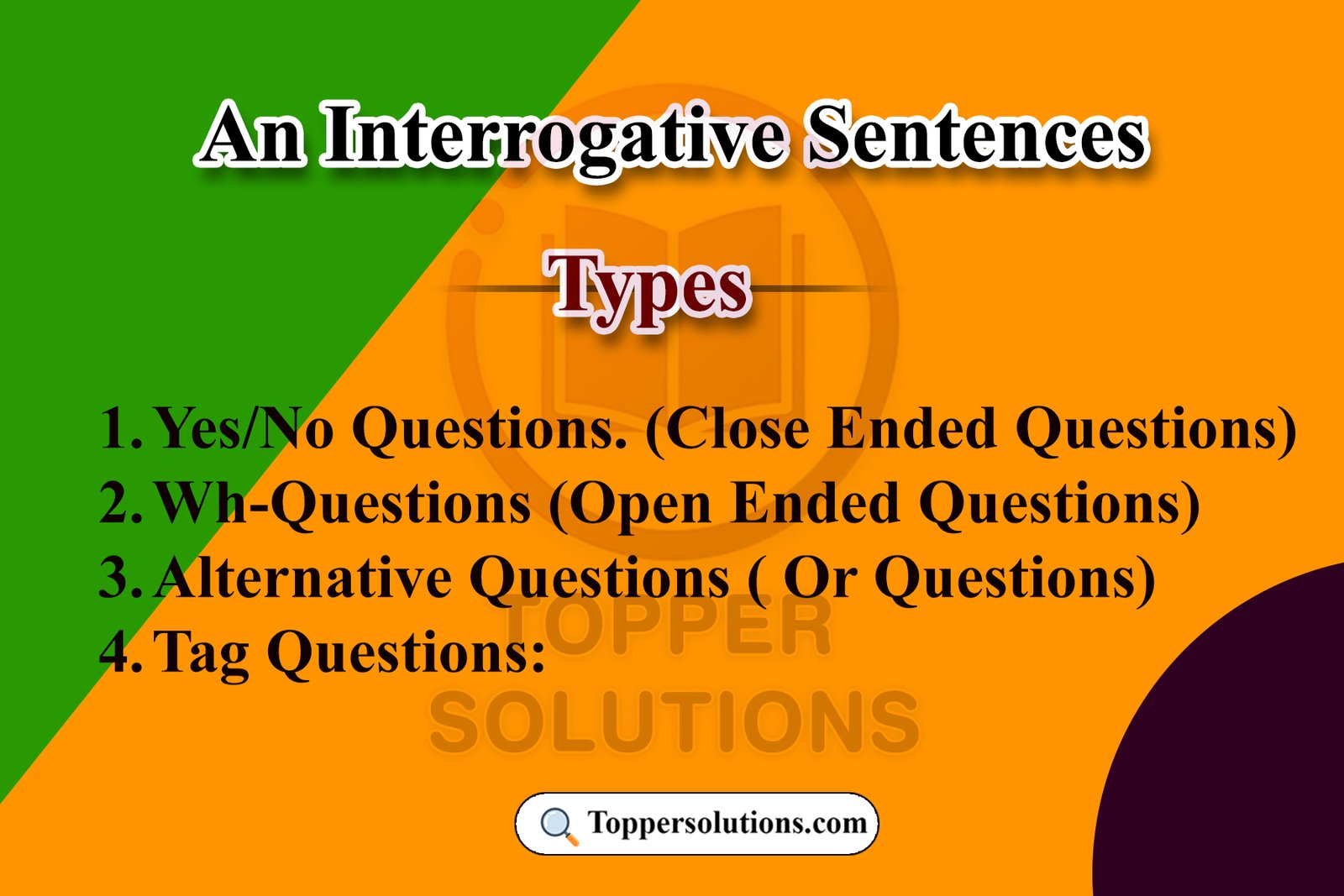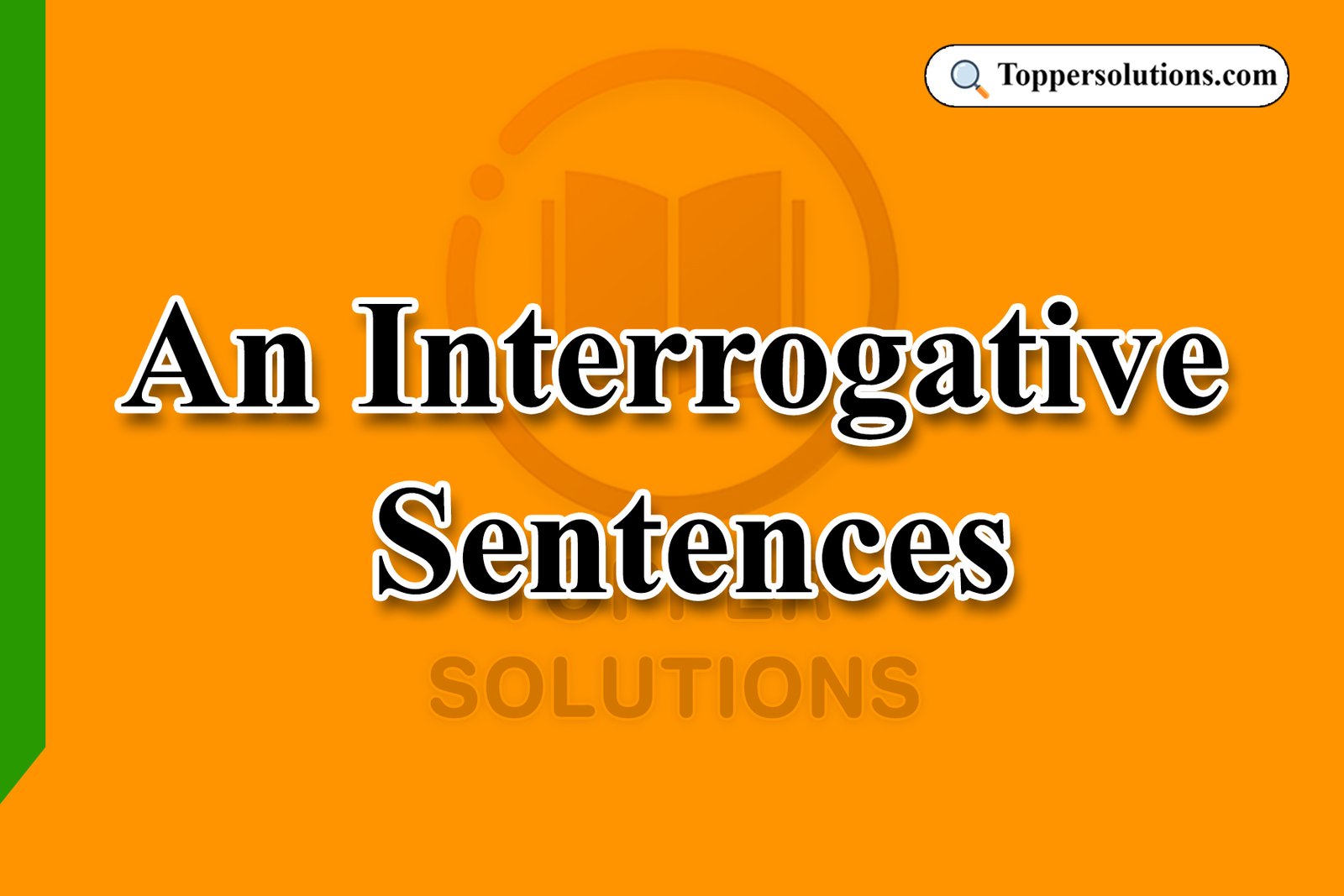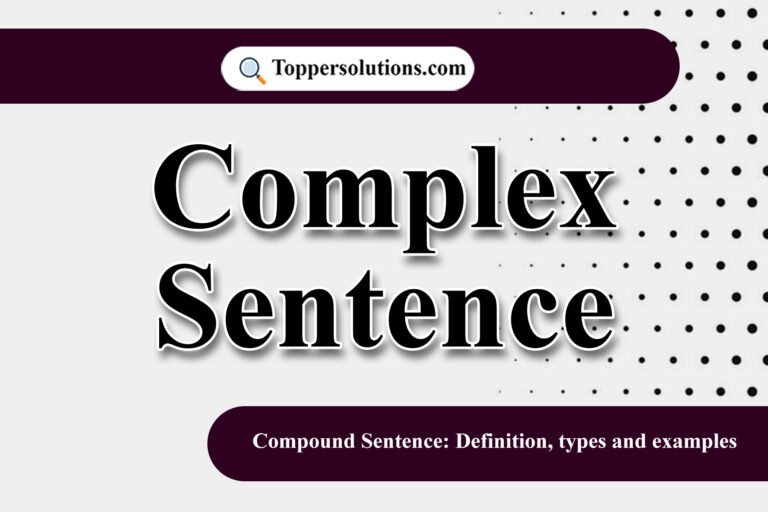What is an interrogative Sentence?
Def: Interrogative sentences are sentences that ask a question, typically to request information. It ends with a question mark (?).
According to the Oxford Dictionary, an interrogative sentence is one “denoting a form or construction used in asking a question.”
According to the Collins Dictionary, an interrogative sentence as one “having the form or force of a question.”
Examples of Interrogative Sentences:
- Do you like tea?
- What is your name?
- How was your day?
- Why have you thrown the bag?
What is the purpose of an Interrogative Sentences?
The main purpose of interrogative statements is to obtain information. Questions can be about a wide range of topics and used in a variety of circumstances.
Kinds of Interrogative Sentence:
There are four main types of interrogative sentences.
- Yes/No Questions. (Close Ended Questions)
- Wh-Questions (Open Ended Questions)
- Alternative Questions ( Or Questions)
- Tag Questions:

1. Yes/No Questions. (Close Ended Questions)
Def: The sentence start with helping verb called close ended Question. It requires a brief answers. We generally answer it in “yes/no”.
Examples:
- Do you like to play football?
- Are they swimming?
- Have you ever visited Mumbai?
- Can you give me this chair?
2. Wh-Questions (Open Ended)
Def: The sentence start with Wh word called Open Ended Question. It is a type of question that invites a more extensive or detailed response. It cannot be answered with a simple ‘yes’ or ‘no’. It requires respondents to elaborate on their point.
Examples:
- Why are you weeping?
- When did you meet my sister?
- How have you handle this problem?
- Who killed him?
3. Alternative Questions ( Or Questions)
Def: It is used to find out someone’s choice whether he/she likes or dislikes. It presents options and require the respondent to choose between them.
Presenting options:
- Alternative questions give two or more options, typically connected by the word “or.”
Limited response options:
- Respondents have to select one of the choices.
Examples of alternative questions:
We can use or questions/alternative questions in following conditions:
Food Preferences:
- Would you like book or notebook?
- Would you like tea or coffee?
Decision-Making:
- Will you go the school or office?
- Do you like to play football or cricket?
Event Planning:
- Do you want the celebration held indoors or outdoors?
- Should we meet at 3:00 PM, or at 4.30 Pm
Activity Choices:
- Would you like to go on hiking or do you prefer swimming in the pond?
- Do you want to visit the Albert hall museum or want to explore the Kanoi Park?
4. Tag Questions:
Def: Tag questions are short questions added at the end of a statement. They are used to seek confirmation, agreement, or to invite a response from the listener.
Examples of Tag Questions.
- She is playing cricket, isn’t she?
- They never open the gates of mosque, do they?
- Someone is calling you, aren’t they?
- This is my car, isn’t it?
- I am reading a novel. Aren’t I?
Uses of Interrogative Sentences
Def: Though the primary goal of an interrogative phrase is to ask a question, they may accomplish much more. The following are the uses, or functions, of interrogative statements.
We can use interrogative sentences in 13 conditions:
- Information Gathering:
- Seeking Clarification:
- Expressing Curiosity:
- Confirmation:
- Expressing Doubt:
- Requesting Permission:
- Offering Choices:
- Expressing Possibility:
- Interviews and Surveys:
- Engaging in Conversation:
- Problem-Solving:
- Expressing Interest:
- Checking Understanding:
Examples of uses of Interrogative sentences
- What is your name? (Information Gathering)
- What is your age? (Information Gathering)
- Why did you choose that career? (Decision-Making)
- Why did you file a case against him? (Decision-Making)
- Which option do you think is the best?” (Offering choices)
- Which thing do you like to take? (Offering choices)
- Did you receive my email? (Confirmation)
- Have you finish my work? (Confirmation)
- Are you sure about that? (Expressing Doubt)
- May I borrow your pen? (Requesting Permission)
- Can you give me a pencil? (Requesting Permission)
- Would you like tea or coffee? (Offering Choices )
- Could it rain later? (Expressing Possibility)
- Could she come later? (Expressing Possibility)
- How do you feel about the current situation? (Interviews and Surveys)
- What do you think about the latest news?” (Engaging in Conversation)
- Why is this issue occurring?” (Problem-Solving)
- What is the problem you are facing? (Problem-Solving)
- What are your hobbies? (Expressing Interest)
- Do you follow what I’m saying? (Checking Understanding)
1. What is an interrogative sentence?
2. How can I identify an interrogative sentence?
3. What is the purpose of an interrogative sentence?
4. Can an interrogative sentence be used to make a request?
5. Are all questions considered interrogative sentences?
Report on Nipun Mela, How to write a report on Nipun Mela
Your school organized a ‘Nipun Mela’ Prepare a report for the local news-paper using the given hints and your experience. (planning, model display, stalls, decoration, visit of guests, prizes) NIPUN …
अंग्रेजी पढ़ना कैसे सीखे , अंग्रेजी पढ़ना कैसे सीखे आसान तरीका
अंग्रेजी पढ़ना कैसे सीखे अंग्रेजी एक वैश्विक भाषा है, और इसे सीखना आज के समय में बहुत फायदेमंद हो सकता है। यहाँ कुछ तरीके दिए गए हैं जिनसे आप अंग्रेजी …
Complex Sentences: Definition, Structure and Examples
What is a complex sentence? Definition: A complex sentence is a sentence that contains an independent clause and one or more dependent clauses. An independent clause, also known as a …


2 thoughts on “What is an interrogative sentence: Definition, types and examples”